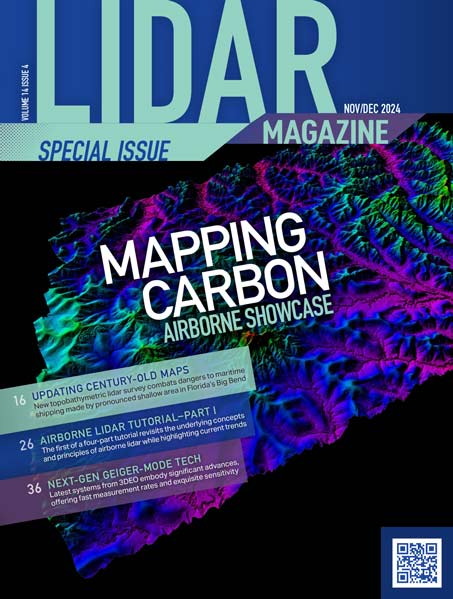The American Society for Photogrammetry and Remote Sensing (ASPRS) Board of Directors approved the formation of a Lidar Division at its Board meeting in Milwaukee, Wisconsin on Thursday, May 5. Lewis Graham, CEO of GeoCue Group, was appointed Interim Division Director until a national election for this position is held in late 2011. The new division would subsume the current ASPRS Airborne and Mobile Lidar subcommittees (retaining them as subcommittees within the Lidar Division) and have a top level link on the ASPRS web site.
Graham first proposed the formation of a Lidar Division at the ASPRS 2010 fall Board of Directors meeting. The Board unanimously agreed that they would support the formation of a new division and instructed Graham to obtain support from the required number of voting members of ASPRS. More than sufficient signatures were collected, enabling a Board ballot to finalize the establishment of the Division.
The rationale for forming a Lidar Division stems from the fact that technology in this area is currently exhibiting the most growth and innovation. According to Graham, We are, I believe, at a critical point in the evolution of laser scanning technology for mapping. ASPRS is currently the only organized repository for technical information for mapping lidar. The Society has released guidelines for horizontal and vertical accuracy for airborne laser scanning. ASPRS also, of course, is the keeper of the LAS, the ubiquitous file format exchange standard for kinematic lidar data. Grahams intent was to form a vertical division within ASPRS for what he calls Kinematic Laser Scanning. The focus being moving lidar platforms, not stationary tripod scanners (these devices are solidly an element of the survey community and are technically covered by the ASTM).
Reacting to the decision by the Board, ASPRS Executive Director Jim Plasker observed Establishing the Lidar Division represents yet another forward-leaning action by ASPRS. Over the years, one of the most important aspects underpinning the evolution of ASPRS has been its ability to maintain its relevance with respect to the cutting edge technologies of the day, and to adapt the organization to those changing technologies. Thus, the Society began with only photogrammetry as its focus (and within its name), but over time embraced each major technological breakthrough in the (now) geospatial sciences. This has kept ASPRS in a strong leadership position throughout its history, and we see the Lidar Division fitting well within that arc.
The last new division added by the ASPRS Board was the Geographic Information Systems Division in late 1988. When individuals join ASPRS, they indicate their technical division preference on the membership form and are invited to participate in the ongoing technical work of the divisions. ASPRS has operated with five divisions for the last 23 years — the Geographic Information Systems Division, Photogrammetric Applications Division, Primary Data Acquisition Division, Professional Practice Division, and the Remote Sensing Applications Division.
Founded in 1934, ASPRS is an international professional organization of 6,000 geospatial data professionals. ASPRS is devoted to advancing knowledge and improving understanding of the mapping sciences to promote responsible application of photogrammetry, remote sensing, geographic information systems and supporting technologies. For additional information about ASPRS, visit our web site at www.asprs.org.
